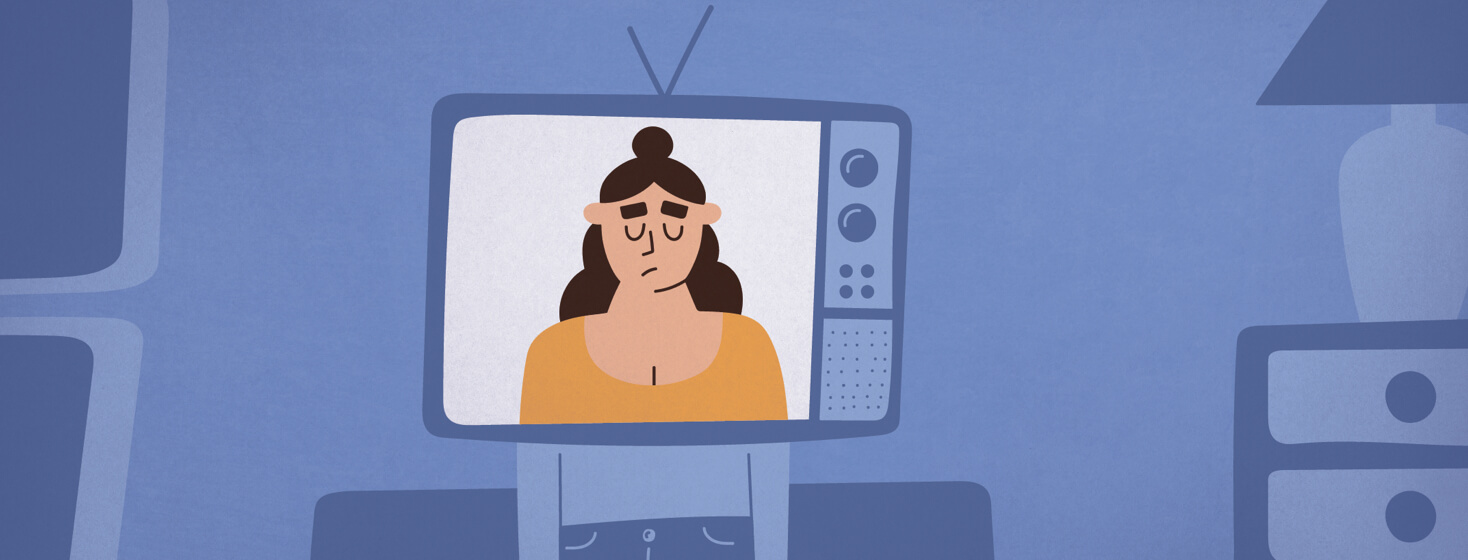More Than Just Sleep
Most people's first experience of narcolepsy is what is presented in movies or TV shows, the narcoleptic character falling into a deep sleep in the middle of a walk or passing out and everyone thinking they are dead.
The extreme and sometimes comical view of narcolepsy in the media means that people often envision a narcoleptic as someone whose life is just mildly inconvenienced by occasionally falling asleep in the day. Someone who must be well-rested with all this extra sleep and downtime.
Narcolepsy symptoms are more than just sleep
This misrepresentation fails to give an accurate and rounded perspective of what narcolepsy is and how it affects the individual. It gives the impression that narcolepsy is all about sleep and misses all the other symptoms.
If a group of narcoleptics was interviewed, one would find commonalities in their lists of symptoms but also variety when describing which symptom has the biggest impact on their lives.
Falling asleep at inappropriate times and being unable to control when the body wants to sleep is a frustrating complaint most narcoleptics could agree on, but it isn't the worst symptom... not for me.
What is cataplexy?
Cataplexy is the sudden loss of muscle control, ranging from the fluttering of the eyes to the complete collapse of the body. It is triggered by strong emotions. Laughter, shock, stress, anger, exhaustion, fear, and even arousal, can trigger a cataplexy attack, which can be frustrating and dangerous.
Cataplexy is the symptom that has the most significant impact on my life.
The cost of controlling my emotions
Emotions are part of everyday life. So to cope, like many people with narcolepsy, I have to make lifestyle changes to avoid evoking strong emotions.
Sometimes this may mean not being true to myself and even altering my personality in order to fit in and not risk having a fit. To me, this is worse than falling asleep.
Comedies and cataplexy attacks
The complex impact cataplexy has on my life is evident with comedies. I've always loved them, but my narcolepsy makes it challenging to get through an episode or movie without fitting. A hilarious film or TV show can send me into a run of fits where I become unresponsive and miss minutes, if not longer periods of the show.
If the cataplexy attack lasts long enough, it can zap me of my energy, and then I will need to take a nap. On a positive note, this has made me grateful I can pause and rewind the TV, so unlike in the early days where I would lose out, I can catch up on what I have missed. It also means that I can watch a movie or show several times and find something new, something I had previously missed.
Weight gain affects body and mind
Rapid weight gain without any obvious explanation is another frustration for me. The constant fight to keep the weight off can lead to depression.
Working hard at your diet, trying to fight off the constant sleepiness, and fit in exercise programs whilst still not seeing the results you desire can easily bring you to a low place.
Invisible effort
This is especially hard if it seems that your support systems – family, friends, and physicians – do not see how hard you are trying, how much effort it takes to fight off the sleepiness and summon the energy for a workout, without letting it eliminate the energy you need to get through the day or go to work.
Rapid weight gain is not just physically difficult but can also be mentally exhausting, isolating, and can impact your confidence.
Hallucinations and fear of judgement
Hallucinations, both auditory and visual, are hearing things that are not there and seeing things that are unreal. Such experiences can lead one to feel like you are losing your mind.
Then not wanting or being able to share this with others for fear that they will consider you "crazy" is again worse than falling asleep in inappropriate times or places during the day when you should be awake.
Vivid dreams and their aftermath
Vivid dreams and night terrors are so real that one awakes in sweat, out of breath, and with severe heart palpitations. Why? As a result of being abused, raped, shot, and stabbed in your sleep. These dreams are so real they haunt us even after we awake from the dream.
There is a fear of going back to sleep after you have managed to escape from your ordeal. To calm myself, sitting up in bed and trying to find a comedy to watch is a regular occurrence. Which, as I have said previously, has its own complications. To effectively suppress these dreams, taking medication is my only way of not going "crazy" because of narcolepsy.
Narcolepsy is a complex neurological illness
Excessive sleeping has the most immediate disruption on one's social and economic life. Narcolepsy is a neurological illness. Sleep is a part of it, but the body has to deal with so much daily. Brain fog and memory loss affect meaningful conversations as the mind goes blank, and one cannot remember what has been said.
Also, the time taken to complete tasks gets longer and longer. This makes me feel like someone in their 70s instead of the late 30s.
My hope is that with more exposure, when people hear about narcolepsy, they will not just think of "the sleepy" but that they will recognize it as a chronic severe neurological illness.

Join the conversation